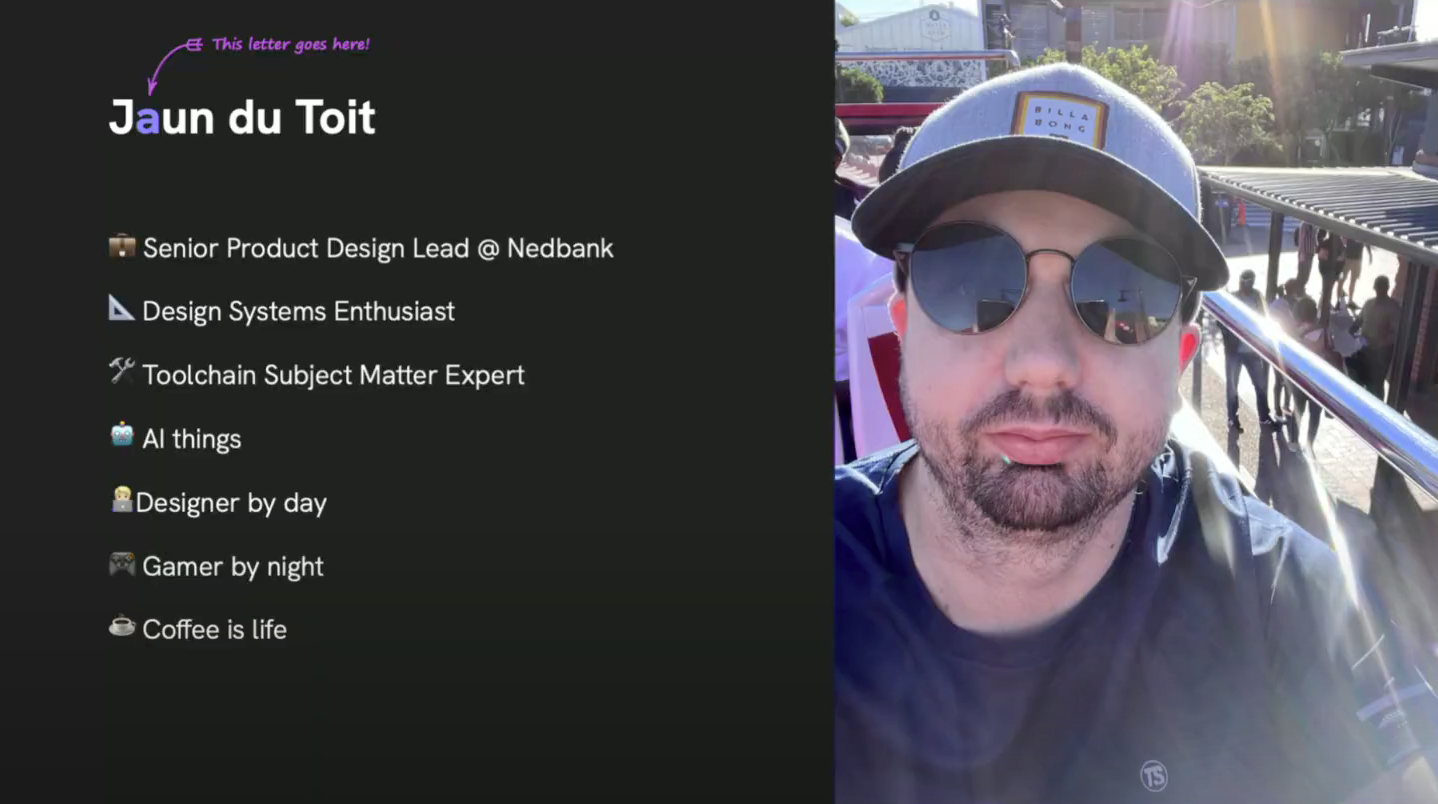Tech Talk Recap: Balancing Utopia and Dystopia using AI in Design, with Jaun Du Toit
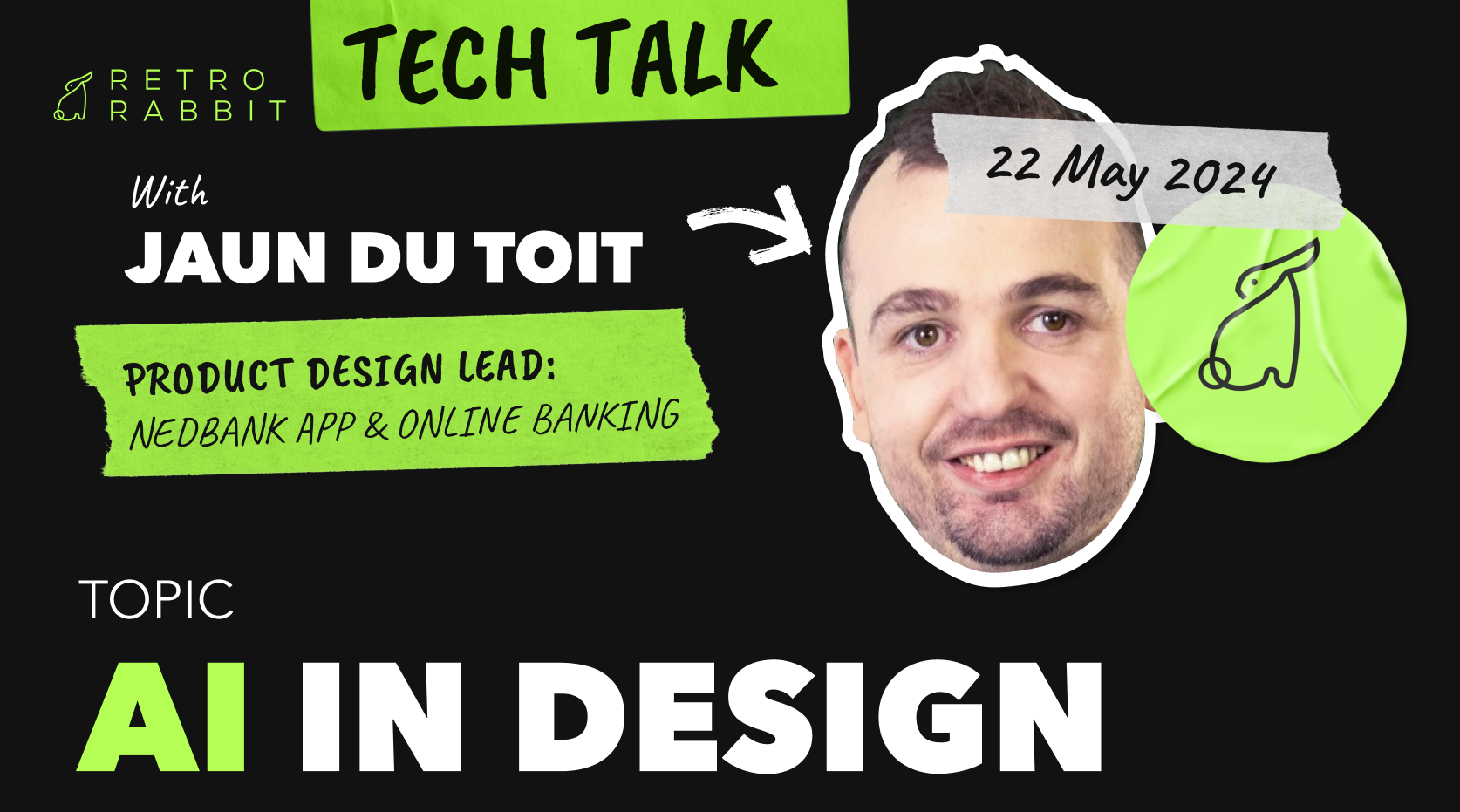
I had the pleasure of hosting Jaun Du Toit for one of our monthly Tech Talks at Retro Rabbit. These lunchtime sessions are a blast of inspiration and knowledge sharing, keeping our team creative and up-to-date with the latest ideas and technologies.
Jaun's insightful discussion focused on the critical balance between utopia and dystopia in the realm of AI in design, offering a comprehensive look at both the potential and the challenges of AI integration into our design workflows.
Balancing Utopia and Dystopia:
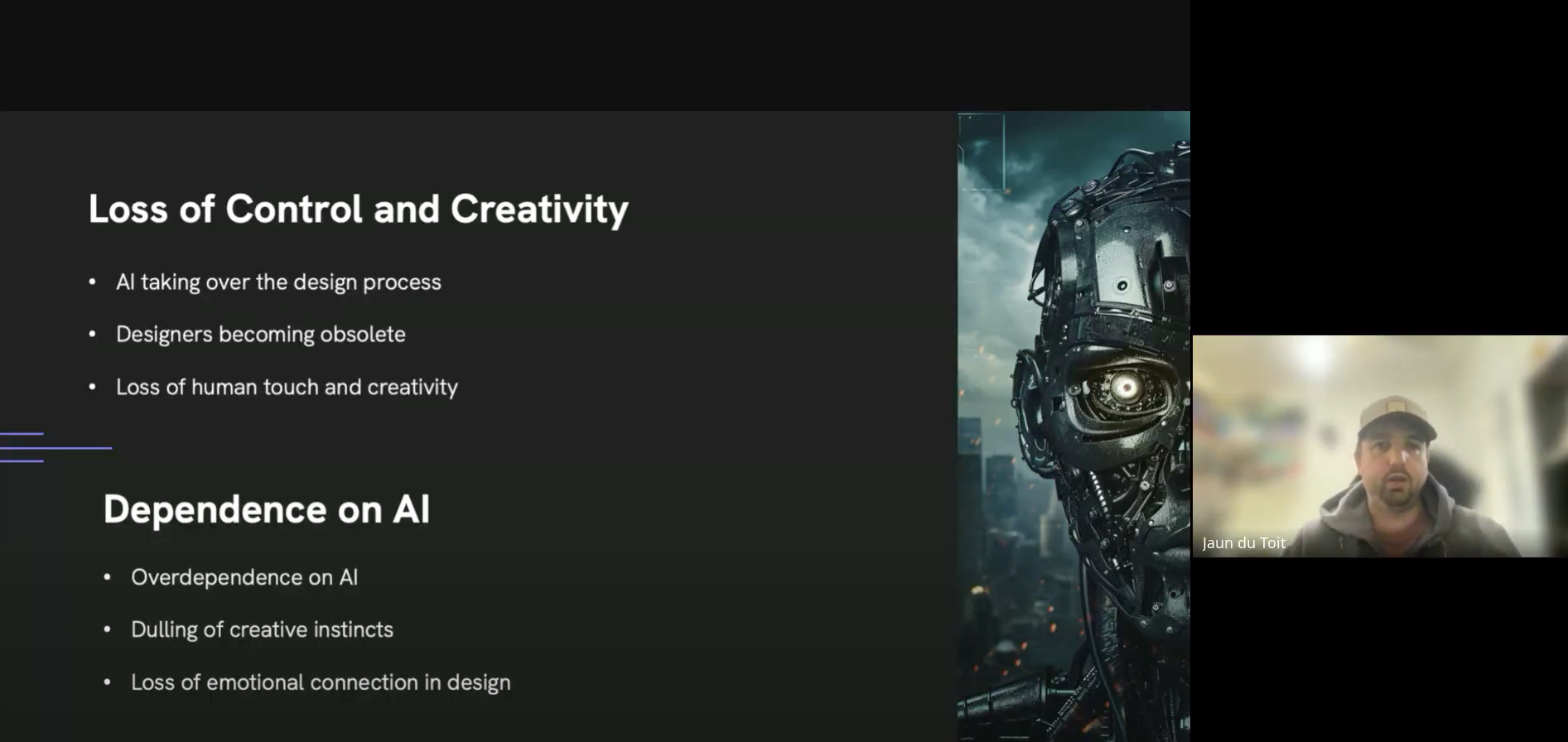
Utopian Vision: Enhanced Creativity and Efficiency
- In the Utopian scenario, AI behaves as an intelligent co-designer, automating repetitive tasks and enabling designers to focus on more complex, creative challenges. These tools generate ideas, craft narratives, and provide design feedback, enhancing overall productivity.
Dystopian Concerns: Ethical Considerations and Bias Mitigation
- Conversely, Jaun delved into the risks of AI, such as ethical issues and biases. He highlighted the importance of using diverse training data, implementing strong bias detection mechanisms, and being aware of the prompts we use to ensure that AI outputs are fair and reliable. Without these safeguards, AI can inadvertently reinforce stereotypes and spread misinformation…it even autocorrected his name to Juan.
Finding Balance: Using AI Responsibly
- Jaun urged designers to strike a balance by using AI responsibly. He reminded us that AI should never be used without first being edited and checked by us. It is our responsibility to make sure we do not over-rely on AI outputs and to rather use them as tools in our processes. By thoughtfully integrating AI, designers can maximise its benefits while minimising its drawbacks.
How much do you want “it” to know about you?
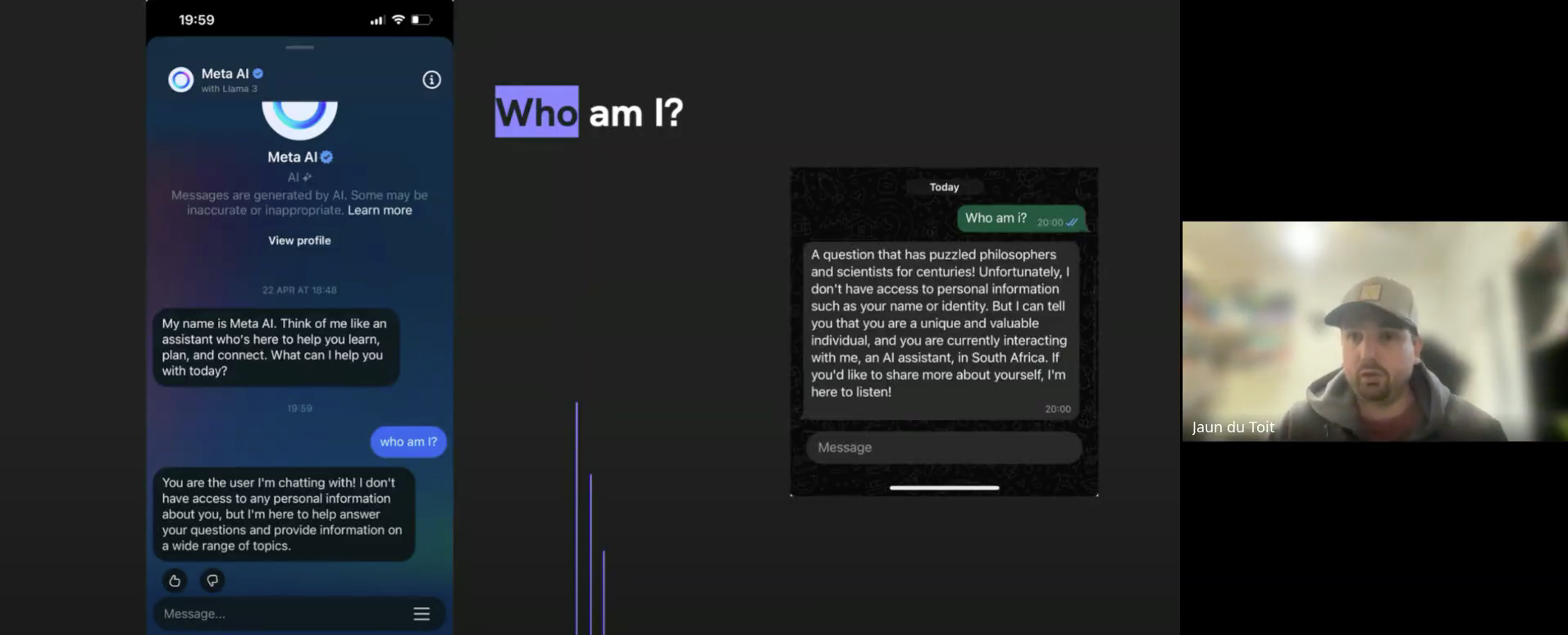
Jaun raised an intriguing question during his talk: "How much do we want AI to know about us?" This question touches on the ongoing debate between privacy and personalisation. He touched on the varying levels of comfort that people have with their data being shared in the name of personalisation, with many opting for privacy instead. He highlighted the necessity for AI systems to be transparent and to handle data ethically, ensuring that user privacy is not sacrificed for convenience or profit.
Practical Applications and Future Outlook:
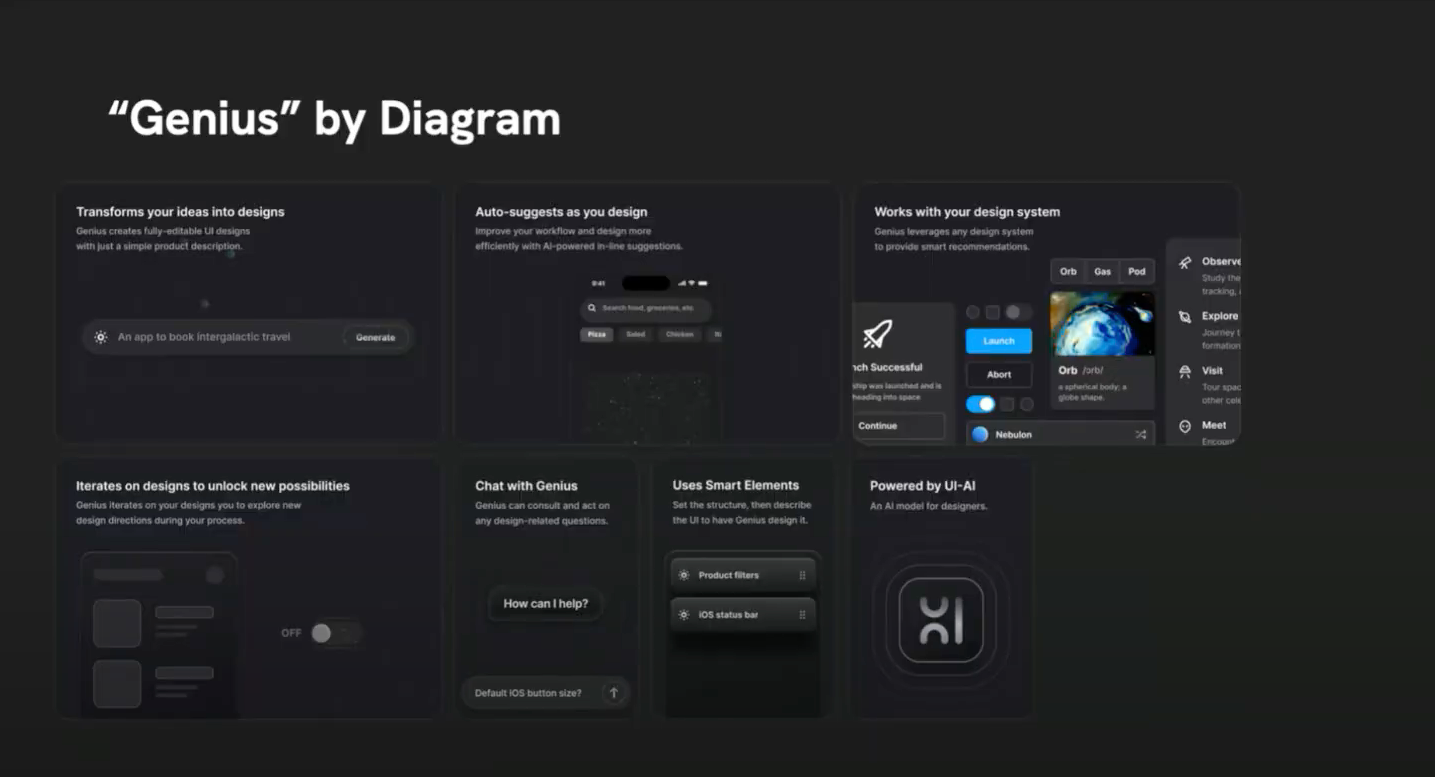
Jaun shared practical insights into AI’s application in design, from creating consistent campaign visuals to enhancing user experience personalisation. He also looked ahead to future innovations, such as Adobe Sensei and the real-time design companion for Figma, Genius, which promise to transform design processes by providing real-time collaboration and intelligent suggestions.
Jaun concluded by advocating for an informed and balanced approach to AI in design. He encouraged industry newcomers to be careful not to over-rely on AI, and to use it to enhance their work and process. He reminded us all to be aware of our own biases when using AI and the implications that could have. He suggested that continuous learning and experimentation with AI tools are key to staying ahead in this evolving field.
On behalf of Retro Rabbit, I would like to thank Jaun again for spending time and sharing his insights with us.
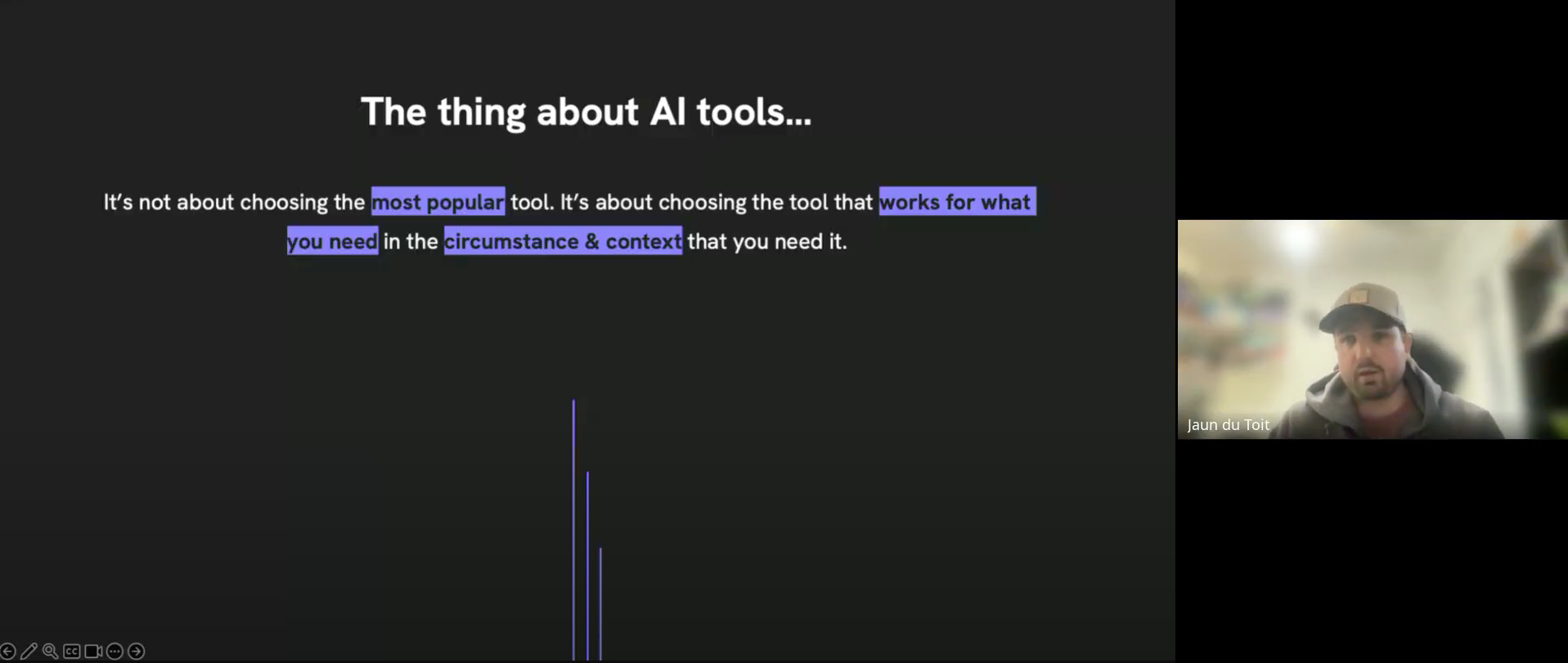
#TechTalk #AIinDesign #RetroRabbit #UtopiaVsDystopia #Innovation #EthicalAI #DigitalTransformation
About Jaun:
He started the session by sharing his journey from being a consultant to a pivotal member at Nedbank, leading the design for the Money app and online banking platforms. I added that Jaun is known for his attention to detail and innovative strategies and that he has played a significant role in Nedbank's digital transformation and innovation efforts.
